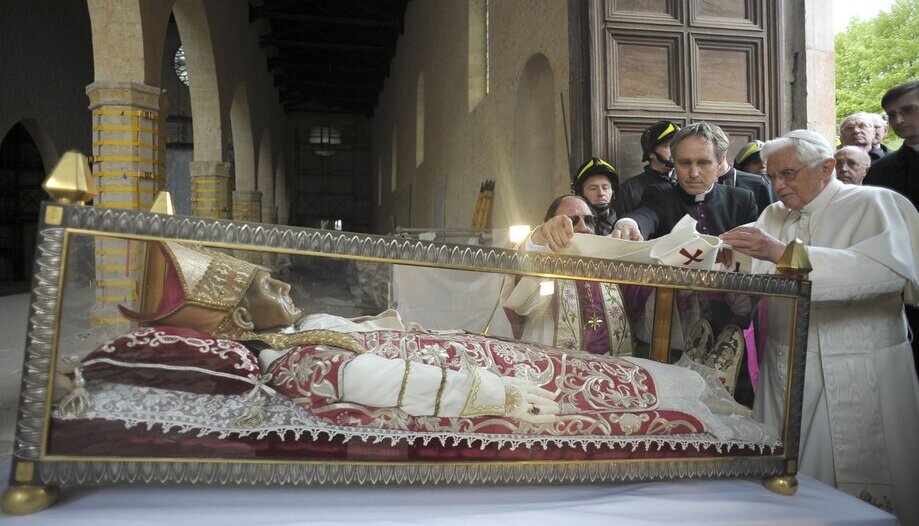Translation of the article into Italian
Translation of the article into English
In a few weeks, Pope Francis will make a new tripThis time to L'Aquila, Italy. This will officially begin the celebrations of the so-called "Celestinian Pardon", a rite that dates back to 1294.
On August 29 of that year, in the basilica of Santa Maria di Collemaggio, Pietro Angeleri was elected Pope under the name of Celestine V in the presence of more than two hundred thousand people. On the same occasion, he granted the gift of plenary indulgence to "all those who, confessed and sincerely repentant", had devoutly visited the same basilica "from the Vespers of August 28 to the Vespers of the 29th".
The pardon bull
The formal bull from the papal chancellery arrived a month later, on September 29, and the following year the first solemn feast was celebrated, which continues to this day. A sort of "jubilee ante litteram" dedicated to forgiveness, since the first real Holy Year was instituted in 1300 by Boniface VIII.
The authenticity of the Bull of Pardon has been questioned several times over time, but it was St. Paul VI who, in 1967, at the time of the general revision of all plenary indulgences, counted that of Celestine V at the top of the official list.
The central concepts of this precious document are peace, solidarity and reconciliation. Today they resonate with more timeliness than ever, precisely because of the events of war that are also shaking Europe. And it is significant that the last trip Pope Francis made was to Canada, precisely to reconcile the Church with the native peoples of those lands.
Pope Francis at L'Aquila
The trip to L'Aquila takes on an additional meaning of rebirth, after the disastrous earthquake of 2009 razed its historic center, including the basilica of Collemaggio. The visit of Pope Francis is also a stimulus for the populations still struggling to regain the normality of ordinary life. It is no coincidence that, after a private visit to the city's cathedral, which is still uninhabitable, the Pontiff also greeted the families of the earthquake victims in the parvis.
Francis will also be the first pontiff in history to open, after 728 years, the Holy Door that inaugurates the acts of the Pardonanza, and it is representative that he does so when he has made mercy a cornerstone of his pontificate.
"L'Aquila, with the image of Collemaggio, will reach the whole world as a city that proclaims the message of Forgiveness, a message that must see us engaged as protagonists, with works and our witness," commented in recent days Cardinal Giuseppe Petrocchi, who has led the diocesan community of L'Aquila since 2013.
The program of the visit The Pope's message has at its center "the spiritual and cultural dimension of an event that should aim at the essential", having forgiveness as its "fundamental nucleus", the Archbishop reiterated.
And one last note. As of 2019, the Celestinian Perdonanza is a UNESCO Intangible Cultural Heritage.









